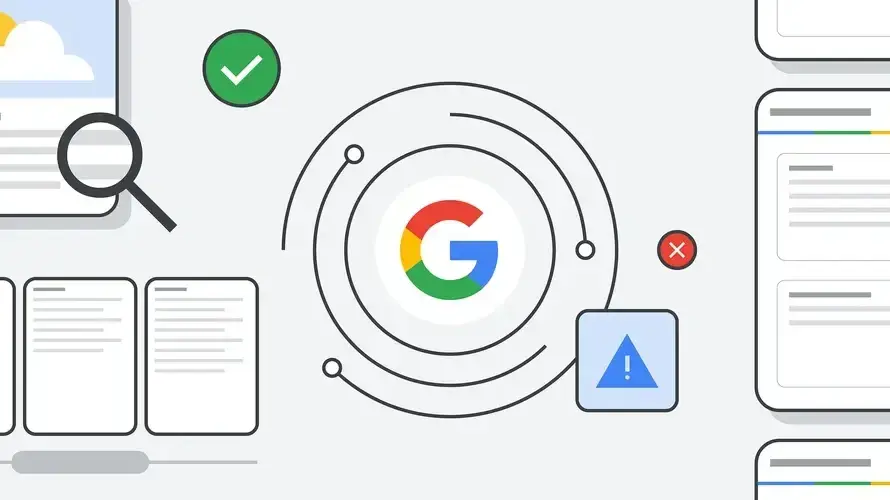Google's idea is that from 2023 only the five main topics present on the websites that the Internet user has visited in the last week through the Google Chrome browser (the most used, with a market share of 66 %).
These themes will be visible to the user, who will be able to delete them.
Or what is the same: you will be given the option to decide not to participate in the tracking system.
More information
The end of third-party 'cookies': towards a new era of digital business?
The measure is revolutionary for the sector and is part of a context of growing awareness among citizens about the value of their digital privacy. Apple also knew how to capture this trend and since last year it allows its customers to decide whether or not they want the applications they have installed on their phones and tablets to collect data about their navigation. This change of course comes at a time when some data protection authorities, such as the Austrian, are considering banning Google Analytics, the tool that manages user information collected by the search engine, for violating community privacy laws.And a few days after Google has been taken to court in Washington for allegedly collecting location data from users even when they believed they had this option disabled on their devices.
Google decided two years ago that the current model, based on so-called third-party
cookies
, would cease to exist in 2022 (although it later delayed its demise to 2023).
Cookies
, the
tracking files that we accumulate on our devices when we browse the internet, can no longer be the pillar on which the great business of digital advertising is built. Officially because they invade people's privacy; unofficially, because technologies like ad blockers are making them obsolete.
How to ensure that advertisers can continue personalizing their ads without Internet users feeling tracked?
Google has been working on this since 2019 together with the industry and the developer community in the so-called Privacy Sandbox.
The solution that was prevailing was to try to anonymize the data previously provided by
cookies
.
For this, groups of users would be made based on their tastes and hobbies based on the browsing history of the last week (
Federated Learning Cohorts
, or FLoC) collected in every Chrome browser.
These groups or cohorts could overlap, so that in the end there would be highly segmented groups of individuals, which would always have at least more than a thousand members so that it would be difficult (not impossible) to identify their members.
The user decides
That was the plan until today. The company has just announced a major change in focus. His new system is called Topics and it replaces FLoC. The idea is no longer to group individuals into well-targeted groups and assign them a random identifier, but rather to study the topics around which their browsing revolves. Chrome will define a series of themes, for example “rock music” or “cars and vehicles”, that represent the most outstanding interests of the user in that week according to the websites they have visited. The five most frequent will remain associated with the browser until the most interesting topics are recalculated, so that there is never a detailed history. When the user enters a website that participates in the Topics initiative, one of those five randomly chosen topics will be shared with it and its advertisers.
“When we piloted the FLoC system last year, we received feedback about the potential risk of identifying individuals.
With Topics we have eliminated several of these problems by randomizing and adding noise, in addition to limiting the number of topics with which to label users”, Vinay Goel, director of Privacy Engineering at Google, stresses to EL PAÍS by videoconference.
Google released this 'doodle' starring Cookie Monster in 2009 to commemorate the 40th anniversary of Sesame Street.Google
The difference with the current
cookie
model is substantial. By way of context, today advertisers usually have almost total knowledge of our navigation in the last 18 months. Thanks to the
cookies
that we collect with our activity on the network, companies can know our address, gender, age, IP number (unique device identifier), type of device from which we connect, at what time and for how long we do it, where we click or what websites we have previously visited, among other things. This data allows a very in-depth analysis of who enters a page and for what, when they do it, what their interests are, etc. The information provided by
cookies
, crossed with the one that can be collected with traditional methods (censuses, public databases, etc.), allows the construction of very complete profiles of Internet users.
Another novelty that Topics includes is that the process is carried out entirely on the devices themselves, according to the company.
There is no intervention of any internal or external server.
In other words, the data of Internet users (in this case, the tags of the topics that interest them the most) are not stored anywhere.
The user will be able to know which are those five labels that have been associated with him and eliminate the one that does not interest him.
You'll even be able to disable the functionality entirely, an option never before offered by the company.
As for the categories or themes, they will be developed by machines but supervised by human beings, who must ensure that, for example, they do not contain racial or gender biases, that they are not formed around sexual orientation, etc. “With FLoC there were potentially tens of thousands of possible cohorts to fit users into. With Topics it will be much less: we believe that between 200 and 2,000. We will start with 350″, says Goel.
Topics is the result of lessons learned over the past year, when Chrome tested FLoC and received significant feedback from regulators, privacy advocates, developers, and industry.
“The Privacy Sandbox [the arena where the tests are run] is one of the most ambitious and important efforts we have ever undertaken and we are very grateful for the participation we have had,” says Goel.
The system will begin to be tested at the end of the first quarter of this year and, according to the roadmap, it would be applied on a global scale next year.
You can follow EL PAÍS TECNOLOGÍA on
and
or sign up here to receive our
weekly newsletter
.









